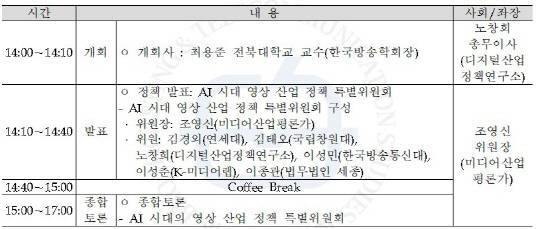The Korean Association for Broadcasting & Telecommunication Studies (KABS) announced on May 27 that it will host a policy forum titled “Support Policies for Korea’s Video Industry: Questioning Minimum Q and Distribution Order” on May 29 at 2 PM at the FKI Tower in Yeouido, Seoul.
This forum comes amid growing concerns over the structural instability of Korea’s video content industry, despite its global popularity. While Korean content has gained recognition worldwide thanks to the rise of platforms like Netflix, YouTube, and advancements in artificial intelligence (AI), the domestic industry faces an urgent need to establish a sustainable ecosystem.

The disparity is stark: major video content producers like CJ ENM and Studio Dragon currently have a combined market capitalization lower than that of JYP Entertainment, a single K-pop agency. This reflects the widening gap between global acclaim and economic viability within the sector.
In response, the 37th executive board of the KABS launched the “Special Committee on Video Industry Policy in the AI Era” in January. The committee has since conducted five months of intensive research and discussion to draft strategic policy proposals.
Key topics to be addressed during the forum include the non-industrial value of Korean video content—such as its role in enhancing national image and its catalytic effect on other export sectors like K-beauty. The special committee argues that a narrow, industry-specific approach has hindered the sector’s growth and ignored its broader economic contributions.

Central to the committee’s recommendations is the need to guarantee a minimum number of productions (Q) and to establish a new distribution model suited to the realities of the AI era. Their proposal, dubbed the “5+2 Policy,” aims to address these priorities.
The forum will serve as a platform to present these research findings and to gather feedback from experts across academia, industry, and research institutions.
Looking ahead, the committee aspires for Korea to become a global content powerhouse comparable to the United States within the next decade. It envisions the rise of Korean content firms with a market value exceeding 10 trillion KRW, solidifying the country’s status as a dominant force in global media.

